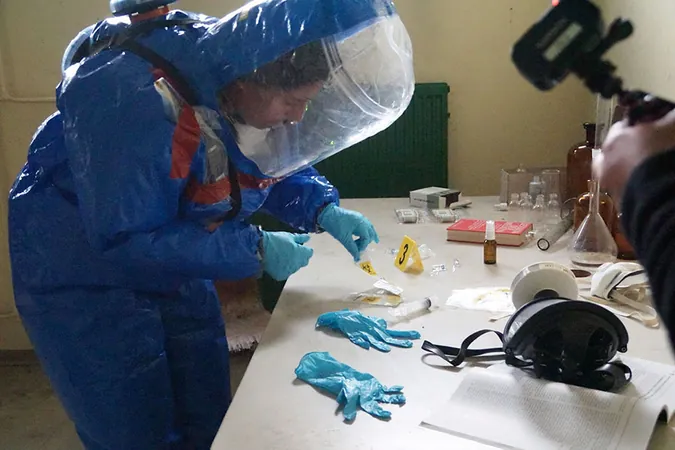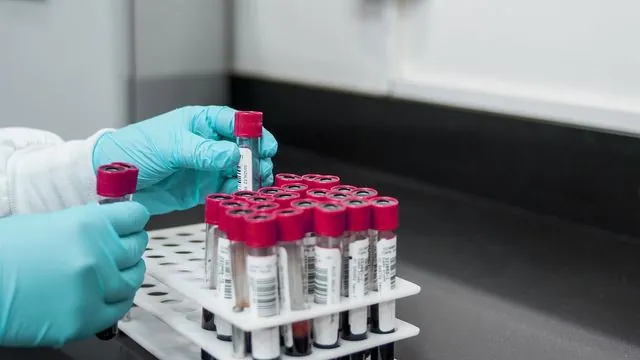
Unlocking Global Preparedness: Investigating Bioweapons Threats
2025-07-20
Author: John Tan
A Critical Global Security Challenge
In an age marked by geopolitical turmoil and rampant misinformation, distinguishing between natural disease outbreaks and potential biological attacks is crucial for global security. A recent study in *Emerging Infectious Diseases* delves into the readiness of the United Nations Secretary-General’s Mechanism (UNSGM) to investigate alleged uses of chemical or biological weapons.
Expert Insights from Around the World
Led by specialists from Switzerland's Spiez Laboratory, Germany's Robert Koch Institute, and various international organizations, this study offers vital insights into how the global community can react to suspicious disease outbreaks, particularly in conflict-laden areas where misinformation is rampant.
A Realistic Test of Readiness
The findings stem from a comprehensive capstone field exercise held in Berlin in 2022, coordinated by the UN Office for Disarmament Affairs (UNODA). This exercise simulated a crisis involving a fictional plague outbreak suspected to stem from bioweapons, evaluating the UNSGM's capability to launch and execute an intricate investigation under pressure.
Why Scrutinizing Unusual Outbreaks Is Essential
Mysterious disease outbreaks, like the 2023 Legionnaires’ disease case in Poland or the Ebola flare-up in Uganda, can spark wild speculation. In politically charged contexts, such rumors can rapidly morph into misinformation and rogue allegations of bioterrorism. The UNSGM is designed to independently verify such claims and assess whether biological weapons were indeed involved.
Key Takeaways from the 2022 Exercise
The Berlin exercise tested the UNSGM's operational readiness in realistic scenarios, with 19 experts from 16 nations participating over a variety of critical tasks, including crossing tense borders and assembling evidence. Here are the major findings:
1. **Operational Readiness Confirmed:** The UNSGM has the capacity to deploy teams and carry out on-site investigations into bioweapons allegations. Team members showed strong familiarity with existing protocols and effective collaboration.
2. **Equipment and Planning Gaps Identified:** Although the UNSGM does not mandate specific gear, the exercise highlighted the necessity for adequate equipment and efficient logistical arrangements. A new predeployment package is in progress to speed up activation.
3. **Training Needs Recognized:** The training gaps led to the creation of specialized curricula in areas such as sampling, investigative interviews, and biosecurity management.
4. **Communication and Security Training Required:** Teams must navigate media scrutiny and misinformation while also managing the psychological pressures of high-stakes missions. The UNSGM will prioritize training in public communication and team resilience.
Implications for Global Health and Security
For public health authorities, the capability to credibly investigate suspicious outbreaks is paramount. It's a crucial element in maintaining public trust, especially during a biological attack or misinformation campaign that threaten the reputation of national health institutions.
Moreover, active participation in the UNSGM allows countries to train experts and influence global norms, an increasingly vital factor as tensions rise and the accusations of bioweapons violations become commonplace.
The Risks of U.S. Disengagement
The 2022 exercise illustrated the power of international cooperation but also spotlighted the dangers of uneven engagement. The United States, a once-steadfast leader in global health security and arms control, has increasingly retreated from these responsibilities.
During the Trump-Vance Administration, funding cuts for international disarmament and biosecurity efforts jeopardized American technical expertise, crucial for outbreak investigations. Many trained experts come from U.S. institutions, and budget cuts have stifled the pipeline of qualified personnel, undermining the credibility in global health forums.
Without ongoing investment, the U.S. stands to lose its role in shaping investigative standards and protecting national interests in biological incidents, both at home and abroad.
A Call to Strengthen Global Mechanisms
As disinformation and emerging infectious threats intertwine, bolstering global investigative mechanisms is more urgent than ever. The 2022 UNSGM exercise signifies progress, highlighting the necessity for continued investment in well-coordinated responses and trust-building. A robust and credible international investigative system is not merely an asset; it's vital for ensuring health security and acting as a deterrent against the misuse of biological research.





 Brasil (PT)
Brasil (PT)
 Canada (EN)
Canada (EN)
 Chile (ES)
Chile (ES)
 Česko (CS)
Česko (CS)
 대한민국 (KO)
대한민국 (KO)
 España (ES)
España (ES)
 France (FR)
France (FR)
 Hong Kong (EN)
Hong Kong (EN)
 Italia (IT)
Italia (IT)
 日本 (JA)
日本 (JA)
 Magyarország (HU)
Magyarország (HU)
 Norge (NO)
Norge (NO)
 Polska (PL)
Polska (PL)
 Schweiz (DE)
Schweiz (DE)
 Singapore (EN)
Singapore (EN)
 Sverige (SV)
Sverige (SV)
 Suomi (FI)
Suomi (FI)
 Türkiye (TR)
Türkiye (TR)
 الإمارات العربية المتحدة (AR)
الإمارات العربية المتحدة (AR)